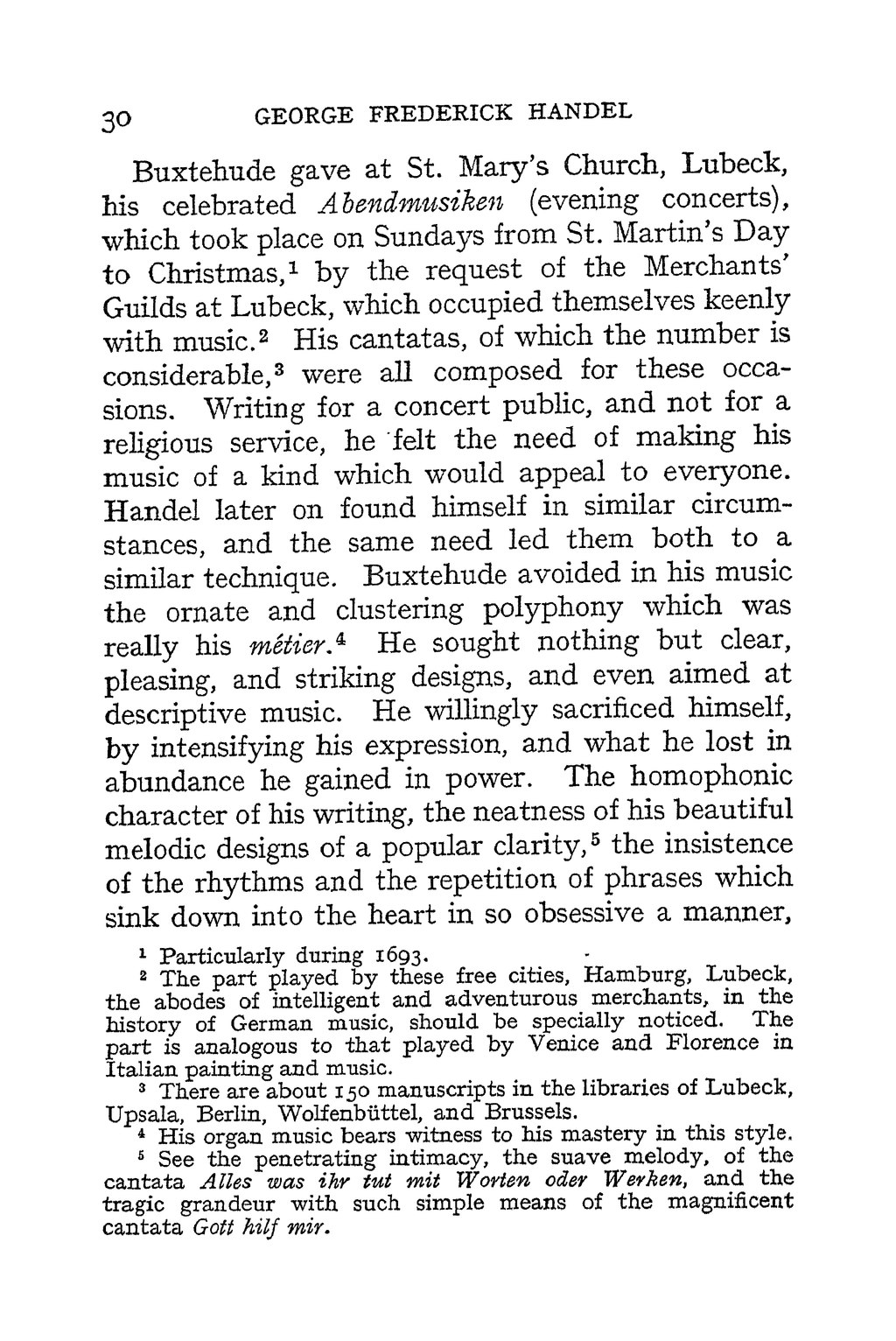Buxtehude gave at St. Mary's Church, Lubeck, his celebrated Abendmusiken (evening concerts), which took place on Sundays from St. Martin's Day to Christmas,[1] by the request of the Merchants' Guilds at Lubeck, which occupied themselves keenly with music.[2] His cantatas, of which the number is considerable,[3] were all composed for these occasions. Writing for a concert public, and not for a religious service, he felt the need of making his music of a kind which would appeal to everyone. Handel later on found himself in similar circumstances, and the same need led them both to a similar technique. Buxtehude avoided in his music the ornate and clustering polyphony which was really his métier.[4] He sought nothing but clear, pleasing, and striking designs, and even aimed at descriptive music. He willingly sacrificed himself, by intensifying his expression, and what he lost in abundance he gained in power. The homophonic character of his writing, the neatness of his beautiful melodic designs of a popular clarity,[5] the insistence of the rhythms and the repetition of phrases which sink down into the heart in so obsessive a manner,
- ↑ Particularly during 1693.
- ↑ The part played by these free cities, Hamburg, Lubeck, the abodes of intelligent and adventurous merchants, in the history of German music, should be specially noticed. The part is analogous to that played by Venice and Florence in Italian painting and music.
- ↑ There are about 150 manuscripts in the libraries of Lubeck, Upsala, Berlin, Wolfenbüttel, and Brussels.
- ↑ His organ music bears witness to his mastery in this style.
- ↑ See the penetrating intimacy, the suave melody, of the cantata Alles was ihr tut mit Worten oder Werken, and the tragic grandeur with such simple means of the magnificent cantata Gott hilf mir.
